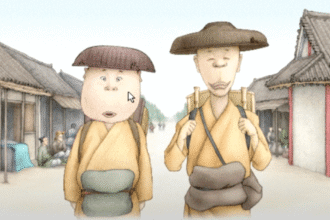Today, nearly every technology incorporates some form of artificial intelligence, whether it’s the brief summaries appearing at the top of Google searches or email applications that automatically summarize incoming messages and suggest replies. In Hollywood, the terms machine learning and generative AI have become almost interchangeable, sparking both dramatic reactions over audio modifications in Best Picture nominees like The Brutalist and Emilia Pérez, and a more substantial alarm regarding screenwriters discovering that their scripts are being utilized to train AI writing software.
Amid ongoing discussions about AI’s roles in directing, scripting, filming, or merely editing films, the industry has introduced its first AI-generated short films, with a full-length feature recently showcased at one of the top film festivals. While this feature garnered little attention beyond the festival and received limited reviews, its presence amplifies the urgency of the discussions surrounding AI technology. The future is here, and it definitely feels unsettling.
‘What’s Next?’ is more than just a title
At the 75th Berlin International Film Festival, an entirely AI-generated film titled What’s Next? by Cao Yiwen debuted, aptly named considering the dialogues it sparks. Although few critics reviewed the 72-minute film—accumulating only about 50 audience ratings on platforms like Letterboxd and IMDb, many of which are negative—the festival’s description, highlighting its artificial nature, piqued enough interest to sell out several screenings.
Cao, a Chinese artist educated in Hong Kong and San Diego, was eager and candid about her creative process during our conversation at the festival. She expressed pride in the six consecutive days it took her to generate all the three-to-four-second clips that comprise the film’s runtime, diligently entering prompts from her script.
As a noted skeptic of AI in filmmaking, it was no surprise that Cao and I held differing views on the broader implications of the process. Nonetheless, our courteous conversation opened my eyes to perspectives I hadn’t previously considered, particularly regarding why creators might be drawn to this innovative medium—if it even qualifies as genuine creation.
Yet, it also shed light on complex ethical dilemmas. Generative AI tools face intense scrutiny for copyright violations, given their reliance on existing images to produce new content. The internet is already inundated with uncanny “AI slop” and Studio Ghibli imitations, which can be easily dismissed as frivolous. Any movie created using image generators would inevitably









